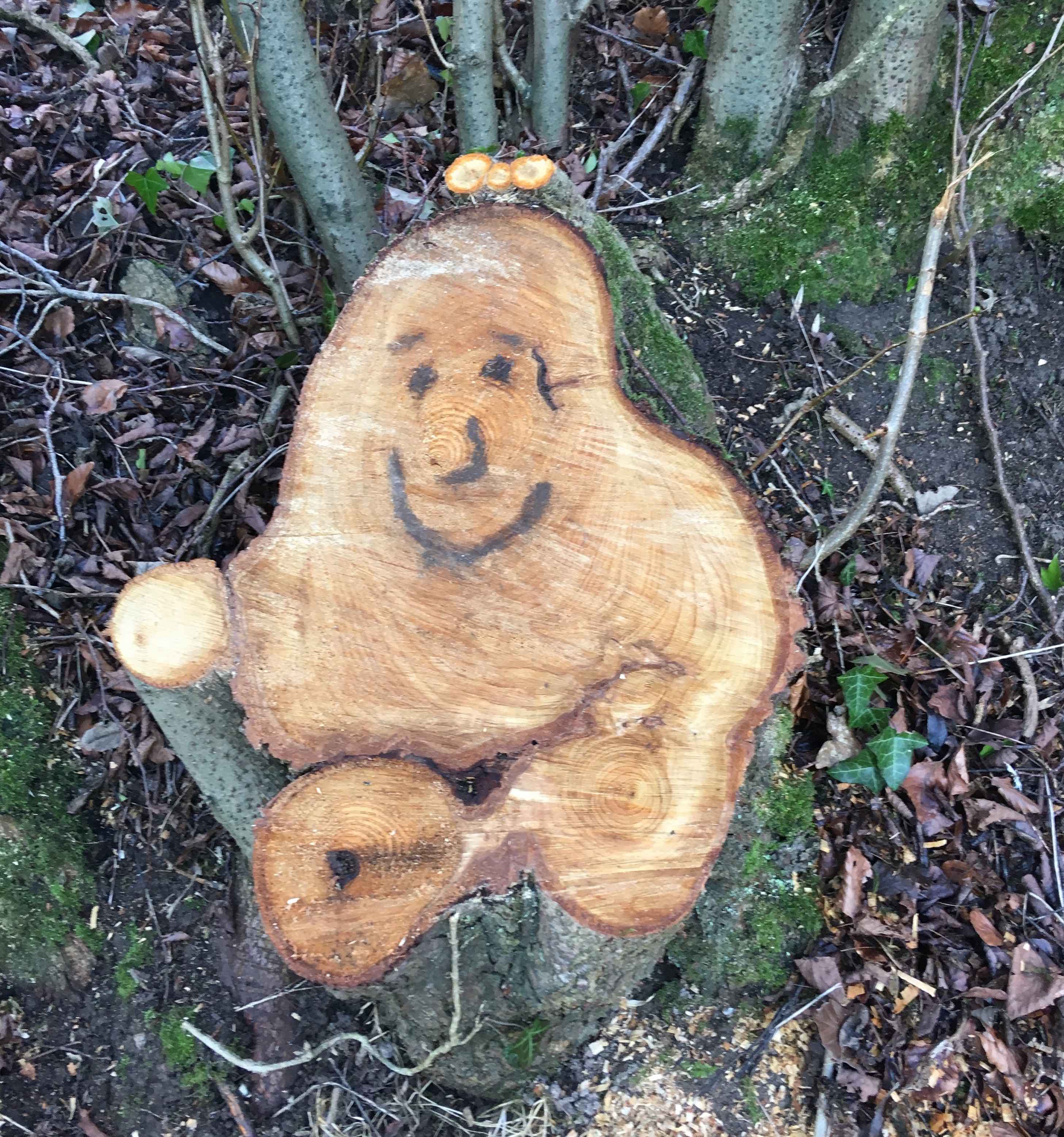Out walking in the woods the other day, I was greeted by an unexpected smile.
I couldn’t help but smile back. In fact, after continuing along the path for a little while, I stopped and retraced my steps so that I could take a photograph of it. I thought I might like to smile at it again later. Here it is:

I don’t know who drew the smile but I wish I could thank them. You see, before I found it I was immersed in an episode of Unnecessary Seriousness in which all sorts of not-important things had suddenly become very important. (I don’t know if you are susceptible to Unnecessary Seriousness too, but if you are, you’ll know that it isn’t a lot of fun.)
The smiling tree interrupted all that and left me with a much better sense of perspective again.
This experience got me thinking about the benefits of smiling, so when I arrived home, I decided to do some reading on the subject.
It turns out that there have been all sorts of experiments to find out if our expression affects our emotional state – a concept known as the Facial Feedback Hypothesis. For example:
- this one, in which participants were instructed to hold a pencil in their mouths in specific ways to elicit a range of expressions, and then monitored whilst being shown a selection of video clips designed to provoke a positive or negative response.
- this one, in which participants were told to do something similar using a chopstick, whilst engaging in physically or mentally stressful activities.
- or this one, in which participants were asked to mimic a range of positive and negative facial expressions they were shown, either with or without being able to see themselves a mirror.
Overall, it would appear that smiling (even if we’re not feeling very smily at the time) can help us to feel happier, make funny things seem funnier and even support our cardiovascular system in recovering from stressful experiences. If we see ourselves smiling, the effects can be even more pronounced.
Of course, if we do something that makes someone else smile, we can experience a whole range of extra social benefits as a result. In fact, there’s a suggestion that people whose names include sounds which use the same facial muscles as a smile (‘eeee’, for example) may find that others are more likely to help them than those whose names don’t.
So, in those stressful, not-much-fun moments that crop up from time to time, it might be worth experimenting. A quick smile at yourself in the mirror when you pass by might make the rest of the day feel just a little bit easier.
“Sometimes your joy is the source of your smile, but sometimes your smile can be the source of your joy.”
Thich Nhat Hanh
